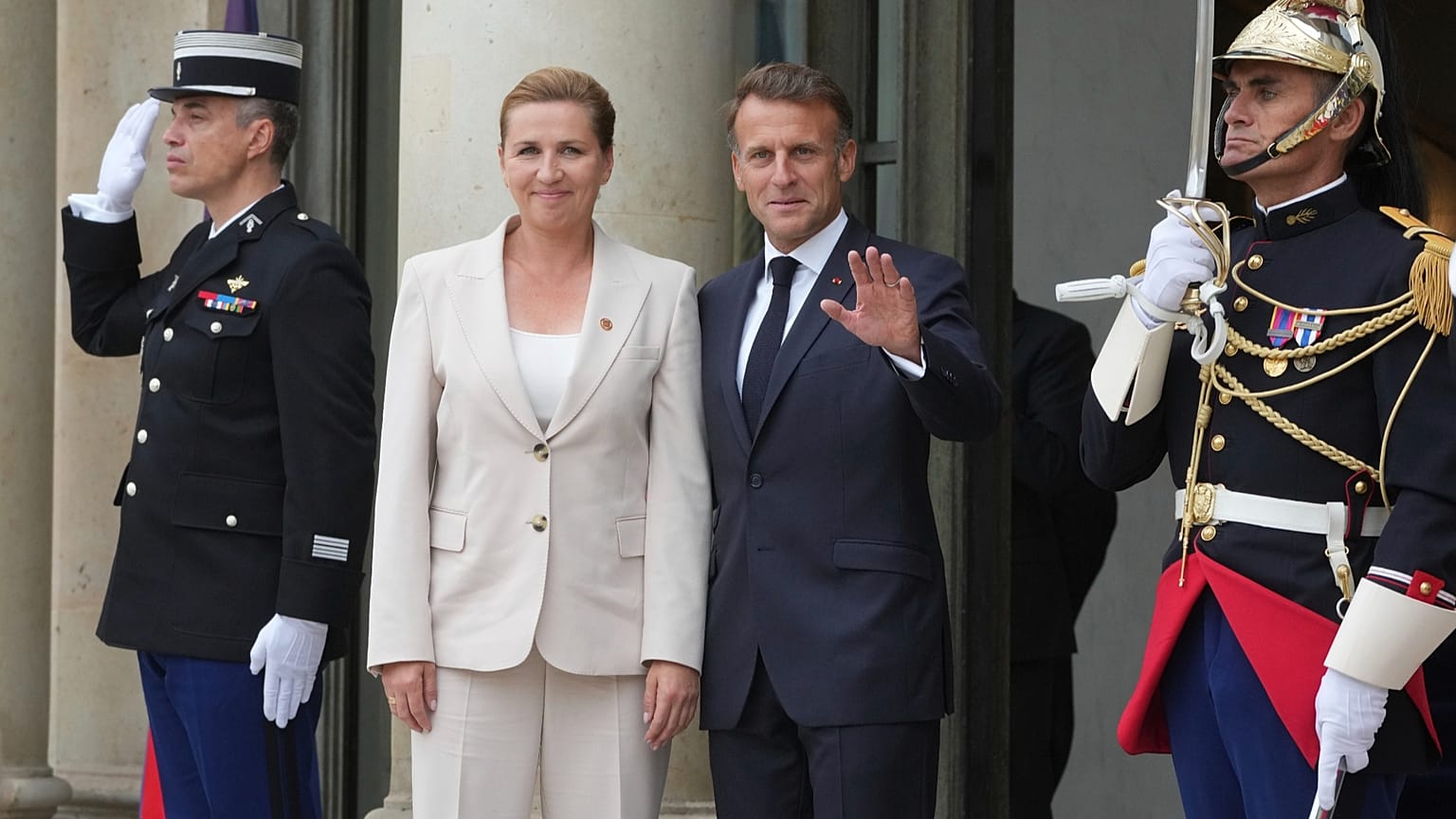Top Stories
Denmark Hosts EU Summit Amid Drone Concerns and Ukraine Talks

Denmark is hosting an informal summit of European Union leaders on March 15-16, 2024, amid heightened security concerns following a series of drone sightings over military and sensitive sites. The summit in Copenhagen will address key defence initiatives, including discussions on a potential Drone Wall and support for Ukraine in its ongoing conflict with the Russian Federation.
The situation escalated last week when unidentified drones prompted temporary airport closures and raised alarms over national security. In response, Danish authorities have implemented a ban on all civilian drone flights to facilitate security operations. This backdrop of aerial surveillance has set a tense stage for the 27 EU leaders who will gather for critical discussions focused on bolstering the bloc’s eastern defence strategy.
The initial meeting will be followed by a broader gathering of the European Political Community, which includes over 40 heads of state from across Europe. The agenda is expected to prioritize effective defence measures and the urgent financial support required for Ukraine.
Defence Initiatives on the Table
Ahead of the summit, the European Commission released a Scoping Paper outlining four flagship projects that it recommends for immediate financing: a European Drone Wall, an Eastern Flank Watch, an Air Defence Shield, and a Defence Space Shield. The concept of a Drone Wall has already been deliberated among ten member states from the eastern flank, particularly in light of recent airspace violations attributed to Russia in Poland, Estonia, and Romania.
A senior official from the French presidential palace described the construction of a Drone Wall as a “complex topic,” stressing that it requires a multifaceted approach that combines various air defence systems. The official noted that relying solely on fighter jets to eliminate inexpensive drones is not feasible in the long term.
German Defence Minister Boris Pistorius tempered expectations regarding rapid implementation, indicating that the concept may not come to fruition for another three to four years. He emphasized the need for prioritization of available resources to enhance military capabilities across the bloc.
Financial Strategies and Ukraine’s Future
Another significant point of discussion will be the SAFE loan programme, which has a budget of €150 billion aimed at enhancing joint procurement and interoperability among EU member states. To qualify for funds, at least two countries must agree to purchase approved European-made equipment, such as drones and anti-drone technology. Notably, two-thirds of the funding has been earmarked for eastern nations, many of which are seeking grants to finance their defence projects, potentially leading to disagreements among member states.
In addition, EU leaders are poised to address Ukraine’s ongoing accession process and the financial assistance needed for its defence against Russian aggression. President Volodymyr Zelenskyy is expected to participate remotely, providing updates on the situation at the front lines. One of the challenges will be structuring financial support for Ukraine as the prospect of peace talks remains uncertain.
A senior EU official mentioned that discussions will also explore the use of approximately €200 billion of Russian assets frozen within the EU since the conflict began, highlighting the complexity of the financial and legal implications involved.
European Council President Antonio Costa will open deliberations on possibly amending accession rules to allow for a qualified majority vote on opening accession clusters, rather than requiring unanimity. Currently, Ukraine’s membership bid has been stalled by Hungary’s veto over various concerns, including energy security and agricultural issues.
This summit will culminate in a larger gathering the following day, where EU leaders will engage with additional heads of state from various regions. Discussions will encompass a range of topics, including traditional and hybrid threats, economic security, and migration, allowing leaders to engage in bilateral or multilateral talks on pressing issues.
As Denmark prepares for these critical discussions, the implications for European security and collaboration in defence efforts remain at the forefront of the international agenda.
-

 Top Stories4 weeks ago
Top Stories4 weeks agoTributes Surge for 9-Year-Old Leon Briody After Cancer Battle
-

 Entertainment2 months ago
Entertainment2 months agoAimee Osbourne Joins Family for Emotional Tribute to Ozzy
-

 Politics3 months ago
Politics3 months agoDanny Healy-Rae Considers Complaint After Altercation with Garda
-

 Top Stories2 months ago
Top Stories2 months agoIreland Enjoys Summer Heat as Hurricane Erin Approaches Atlantic
-

 World3 months ago
World3 months agoHawaii Commemorates 80 Years Since Hiroshima Bombing with Ceremony
-

 Top Stories3 months ago
Top Stories3 months agoFianna Fáil TDs Urgently Consider Maire Geoghegan-Quinn for Presidency
-

 World3 months ago
World3 months agoGaza Aid Distribution Tragedy: 20 Killed Amid Ongoing Violence
-

 World3 months ago
World3 months agoCouple Convicted of Murdering Two-Year-Old Grandson in Wales
-

 Top Stories4 weeks ago
Top Stories4 weeks agoNewcastle West Woman Patricia Foley Found Safe After Urgent Search
-

 Top Stories2 months ago
Top Stories2 months agoClimbing Errigal: A Must-Do Summer Adventure in Donegal
-

 Top Stories2 months ago
Top Stories2 months agoHike Donegal’s Errigal Mountain NOW for Unforgettable Summer Views
-

 World3 months ago
World3 months agoAristocrat Constance Marten and Partner Convicted of Infant Murder








